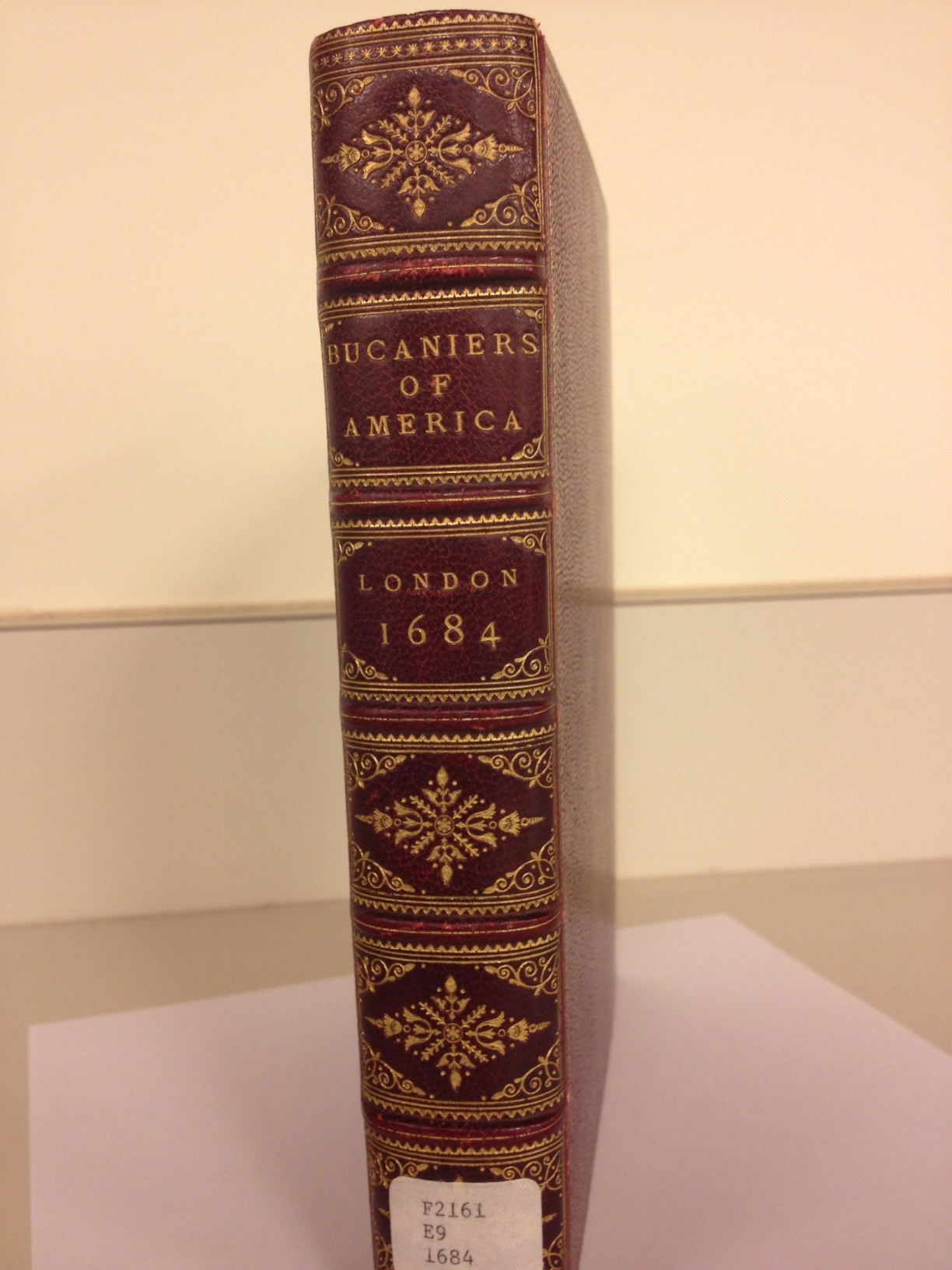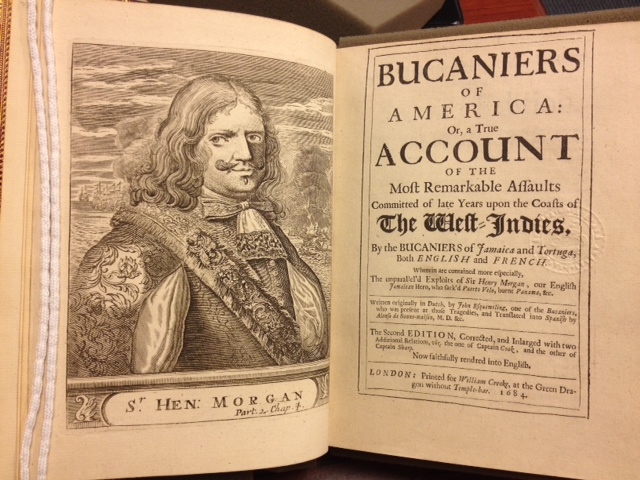Hello readers, and welcome back to the Library blog. It has come to my attention that an increasing number of patrons are interested in the writings of Alexandre Exquemelin, a pirate – or buccaneer – in the early days of piracy in the Caribbean. Therefore, this blogger has decided to review Exquemelin’s 1684 publication of “The Bucaniers of America.” Exquemelin was a Frenchman who indentured himself to the French West India Company in 1666, in exchange for transport to Tortuga. Once he fulfilled his contract and received his freedom, he became a buccaneer and joined Henry Morgan. Exquemelin accompanies Morgan on many of his exploits, including the attacks on Panama and Porto Vello, and joins other buccaneers like Captain Bartholomew Sharp as well. He eventually returned to Europe in 1682, and published this book.

The book is not just of a standard sequence-of-events sort of journal, but includes a wealth of extra information as well. For example, chapters 3, 4 and 5 are all about the island of Hispaniola, and all the wildlife and animals that live on it. When he returns to talking about piracy in chapter 6, he mentions not only what they did but where they would get supplies, how they would divvy up captured plunder, and aspects of their own personal pirate code. For example, on p. 43 Exquemelin writes that “They observe amongst themselves very good orders. For in the prizes they take, it is severely prohibited, unto every one to usurp any thing in particular unto themselves. Hence all they take is equally divided, according to what hath been said before.”

All in all, this a very interesting source for buccaneers in the early Caribbean period. The language is both readable and compelling, and it is quite interesting to see many of the seemingly minor aspects of pirate life – like where they got food and how they dealt with bar tabs – addressed by a period source. The book is not particularly long, and is in remarkably good condition given its publication date of 1684. Other editions of this book are present in The Mariners’ Museum library collection as well, including editions from 1741, 1856 and 1992. Come see for yourself, if you like!